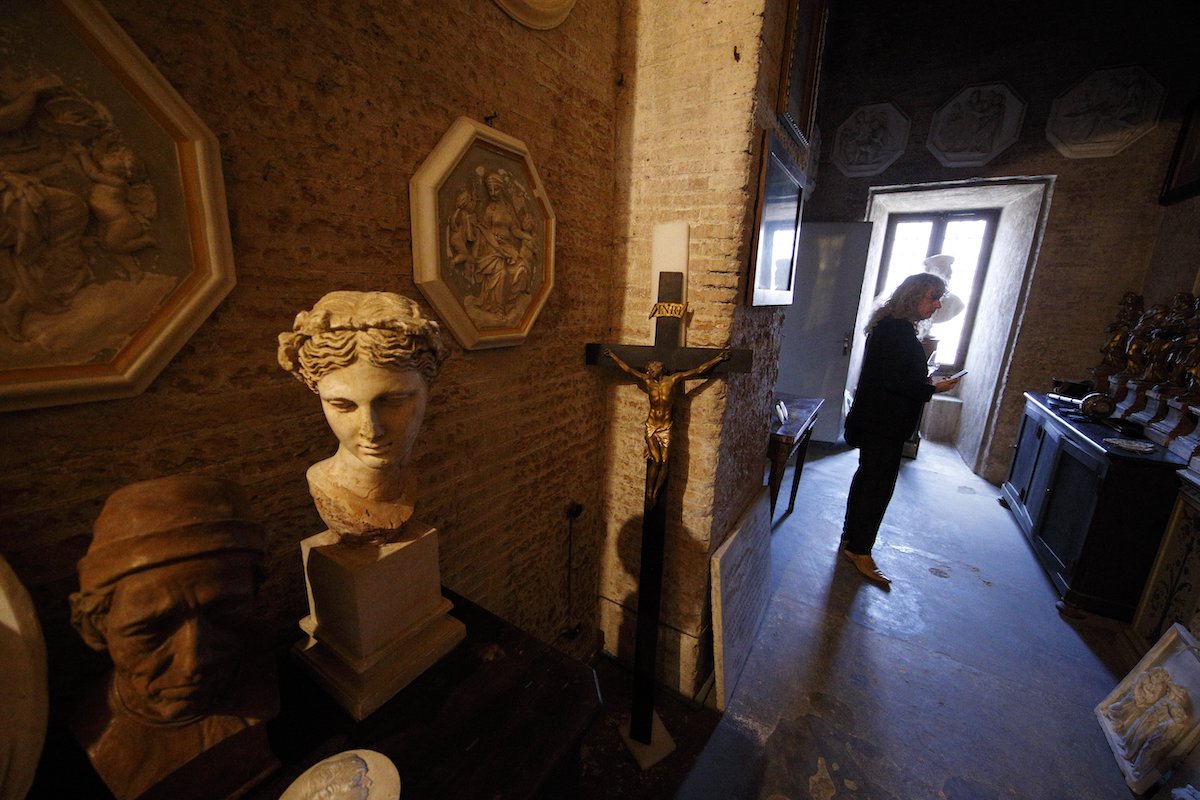By Carol Glatz, Catholic News Service
VATICAN CITY (CNS) — The aesthetic and artistic elements surrounding the liturgy must foster prayer and a sense of communion, Pope Francis said.
“The space, light, acoustics, colors, images, symbols (and) liturgical furnishings constitute fundamental elements of that reality, that event, human and divine at the same time, which is precisely the liturgy,” he said in a written message to members of the pontifical academies.
The message was addressed to Cardinal José Tolentino de Mendonça, prefect of the Dicastery for Culture and Education and president of the coordinating council of the pontifical academies, which St. John Paul II instituted along with the awards of the pontifical academies.
The message was read March 14 by Cardinal Pietro Parolin, Vatican secretary of state, during the academies’ 26th public session, which was organized by the Pontifical Academy of Fine Arts and Letters of the Virtuosi at the Pantheon. The awards this year were dedicated to sacred architecture.
Pope Francis said in his message, “We know well how important the celebratory setting is in fostering prayer and a sense of communion.”
The issue of sacred architecture and spaces “is as significant and timely as ever, since there is always a lively, and sometimes even heated, debate on proposals for the renewal of sacred architecture, which has the arduous task of creating, especially in new neighborhoods, both on the outskirts of cities and in small towns, adequate spaces in which the Christian community can celebrate the holy liturgy with dignity according to the teachings of the Second Vatican Council,” he wrote.
He referred to his 2022 apostolic letter, “Desiderio Desideravi” (“I have earnestly desired”), which insisted that Catholics need to better understand the liturgical reform of the Second Vatican Council and the power and beauty of the Mass.
He highlighted the importance of not losing hope in helping people become aware of and understand symbolic language.
“There can be no question of renouncing such language,” he wrote in the encyclical; “it is rather a question of recovering the capacity to use and understand the symbols of the liturgy.”
The other essential aspect, he wrote in his message, is that the inspiration of artistic and architectural creativity comes from a Christian vision flowing “from liturgical life, from the action of the Spirit and not from human subjectivity alone.”
The gold medal of this year’s pontifical academies award was given to OPPS Architecture studio in Florence for its work renovating a chapel in Rome that belongs to the Sts. Francis of Assisi and Catherine of Siena Foundation of Religion.
The silver medal went to architect Federica Frino for her design of the new St. Thomas Church in Pontedera, Italy.






